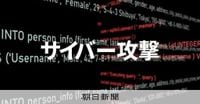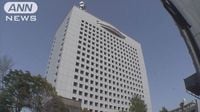On April 18, 2025, Tokai University in Hiratsuka City, Kanagawa Prefecture, reported a significant cyberattack that has rendered many of its systems unusable. This incident has prompted the Kanagawa Prefectural Police to launch a full investigation into the cybercrime.
The attack was first detected on April 17, 2025, at approximately 6:50 AM when some university-related websites failed to display correctly. Following this, the university initiated an investigation, which revealed that servers within its network had been compromised and infected with ransomware due to unauthorized access. To mitigate further damage, the university took the precautionary step of blocking all internet connections, which resulted in the unavailability of critical systems, including student portals and email services.
The impact of the cyberattack has been widespread, affecting multiple campuses across Japan. Not only the Shonan campus, but also the Shinagawa, Shizuoka, Sapporo, and Kumamoto campuses experienced disruptions. As a result, some classes have been canceled, leaving students and faculty grappling with the consequences of this cyber incident. However, it is important to note that the medical facilities affiliated with the university, including the hospitals in Isehara City and Hachioji City, have reported no disruptions to their medical services.
According to a statement from the university, the unauthorized access was confirmed on the morning of April 17, 2025, and it was observed that the extensions of content files had been altered. Investigators have traced the unauthorized activity back to April 16, 2025, around 10 PM. This timeline has raised concerns about the security measures in place at the university, as the attack appears to have been premeditated.
In response to this alarming situation, the Kanagawa Prefectural Police have begun their investigation into the cybercrime, focusing on identifying the perpetrators and understanding the full extent of the damage caused. The university's public relations representative stated, "We are currently working hard to restore our systems and investigate the intrusion route and damage, but we do not yet have a clear timeline for restoration." This uncertainty adds to the anxiety felt by students and staff alike.
The disruption has not only affected academic activities but has also raised questions about the overall cybersecurity protocols at educational institutions. As cyberattacks become increasingly common, many universities are re-evaluating their security measures to protect sensitive information and maintain operational continuity.
As recovery efforts continue, the university is committed to keeping its community informed about the situation. The administration has emphasized the importance of cybersecurity and is likely to implement stricter measures moving forward to prevent such incidents from happening again.
In the wake of this cyberattack, students have expressed their concerns about the impact on their education and the safety of their personal information. Some have taken to social media to voice their frustrations, while others are seeking clarity from the university regarding the steps being taken to enhance security.
Educational institutions across Japan are watching this situation closely, as they too must address the growing threat of cybercrime. With the increasing reliance on digital systems for educational purposes, the need for robust cybersecurity measures is more critical than ever.
As the investigation unfolds, the university community remains hopeful for a swift resolution and a return to normalcy. The incident serves as a stark reminder of the vulnerabilities that exist in our increasingly digital world and the importance of vigilance in safeguarding against cyber threats.




